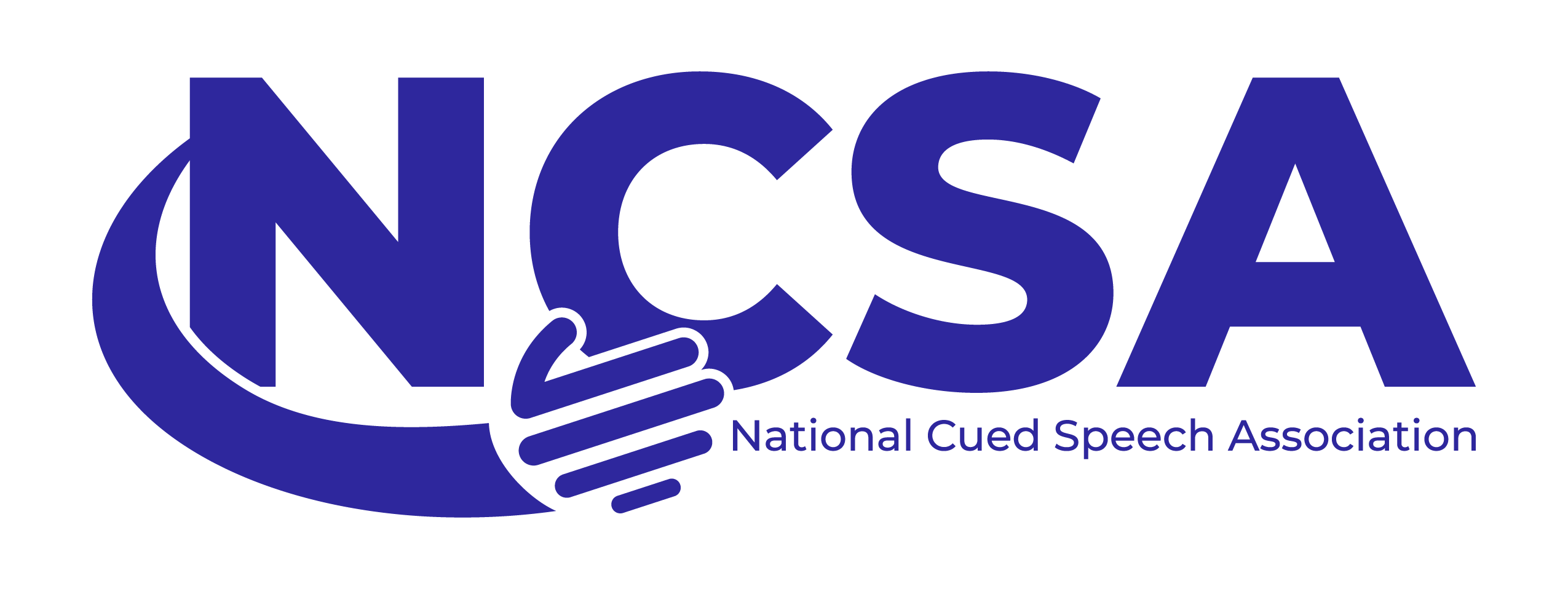Publications
Editor: Carol J. BoggsEditorial Board: Barbara Caldwell, R. Orin Cornett, Polly Earl, Catherine Quenin p. 1 Toward the Automatic Generation of Cued Speech p. 38 Cued Speech & Foreign Language Instruction – Prologue p. 40 Cued Speech as a Practical Approach to Teaching Spanish to Deaf and Hard-of-Hearing Foreign Language Students p. 57 French Cued Speech: Teaching […]
Read Story
Publications
Editor: Carol J. BoggsEditorial Board: Barbara Caldwell, R. Orin Cornett, Mary Elsie Daisey p. 1 The Importance of Thinking Words »-R. Orin Cornett p. 8 An Acoustic Study of the Speech Skills of ProfoundlyHearing-Impaired Children Who Use Cued Speech p. 19 Adapting Cued Speech to Additional Languages p. 30 Cued Speech and the Ling Speech […]
Read Story
Publications
Editor: Carol J. BoggsEditorial Board: R. Orin Cornett, Ph.D.; M. Carolyn Jones, Ph.D.; Joan Rupert; Mary Elsie Daisey;Walter Beaupre, Ph.D. Formerly the Cued Speech Annual Special Research Issue p. 1 Use of Internal Speech in Reading by Hearing and Hearing-Impaired Students in Oral, Total Communication, and Cued Speech Programs p. 4 Role Played by Cued […]
Read Story
Publications
Editor: Carol J. BoggsEditorial Board: R. Orin Cornett, Ph.D.; M. Carolyn Jones, Ph.D.; Joan Rupert; Mary Elsie Daisey;Walter Beaupre, Ph.D. p. 1 Keynote Address Cued Speech: Progress and Perspectives: 1987 p. 17 Language Development Through Communication with Cued Speech p. 32 The Cued Speechreading Test: An Analysis of the Results p. 41 Response Patterns in […]
Read Story
Publications
Editor: Walter J. Beaupre, Ph.D.Editorial Board: R. Orin Cornett, Ph.D.; M. Carolyn Jones, Ph.D.; Joan Rupert p. 3 Teaching With Cued Speech: The Middle Years p. 22 Cued Speech as a Phonological Model p. 34 The Teaching of Cued Speech to Hearing-impaired Adults p. 42 Development of Reading in the Hearing-Impaired p. 62 The Self […]
Read Story
Publications
The Cued Speech Journal pertains broadly to studies of Cued Speech including research, teaching methods, and literature reviews. The first three volumes were published as the Cued Speech Annual. Volume 6, 1998Volume 5, 1994 – Guidelines on the Mechanics of CueingVolume 4, 1990Volume 3, 1987Volume 2, 1986Volume 1, 1985
Read Story
Publications
Editor: Walter J. Beaupre, Ph.D.Editorial Board: R. Orin Cornett, Ph.D.; M. Carolyn Jones, Ph.D.; Joan Rupert; Mary Elsie Sbaiti p.3 Update on Cued Speech p.9 What Can Cued Speech Do For You(?) p. 19 Some Thoughts on Profitable Research Directions Regarding Cued Speech p. 26 Breaking Through the Attention Barrier p. 30 Mainstreaming: It Can […]
Read Story
Publications
Part 3 Discussion An implicit assumption is commonly made by researchers in previous studies of Cued Speech. The assumption is that the production and subsequent reception of cued utterances entail the production and reception of speech. Untested, this assumption has commonly allowed for data interpretation to feed conclusions that simply reinforce the assumption. Thus, it […]
Read Story
Publications
Part 2 For the purpose of this study, the visible attributes of Cued test items were defined in the following terms: an isolated cued English allophone is considered the product of (1) the simultaneous pairing of a particular mouth formation with a particular hand shape (at any of 4 specific placements) to represent a specific […]
Read Story
Publications
Part 1 Unpublished Manuscript DO NOT DISTRIBUTE See published version:Metzger, M. , and Fleetwood, E. (2010). Cued language: What deaf native cuers perceive of Cued Speech. In C. LaSasso , K. Crain , & J. Leybaert (Eds.), Cued Speech and cued language for deaf and hard of hearing children (pp. 53-66). San Diego, CA: Plural. […]
Read Story
